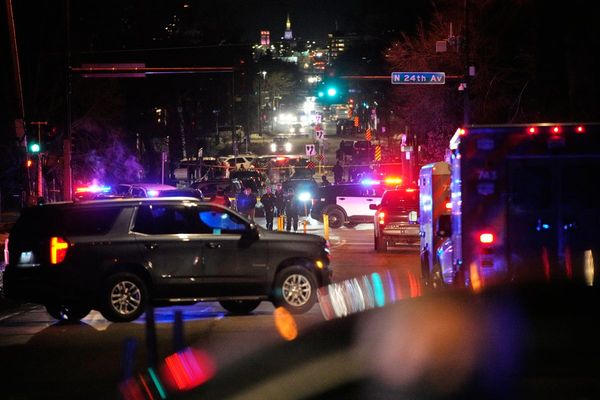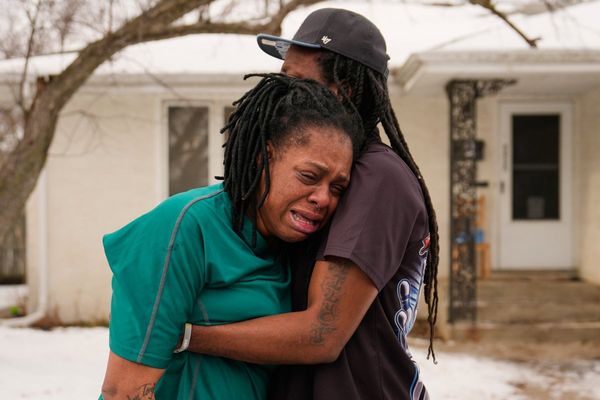The Liberals won 14 of the 35 lower house seats at the July 19 Tasmanian state election, Labor ten, the Greens five, independents five and the Shooters, Fishers and Farmers one.
Liberal Jeremy Rockliff was reappointed premier pending parliament’s resumption on Tuesday. Labor moved a no-confidence motion in Rockliff, but it failed by 24 votes to 10. Labor didn’t get votes from any non-Labor MP. The Liberals will continue to govern Tasmania, with Labor’s last period in government ending in 2014.
The no-confidence motion was doomed after the Greens announced they would not support it on Monday. I previously wrote that the Greens had been frustrated by their negotiations with Labor.
Four of the five independents are left-leaning, with the Shooter the only right-leaning crossbencher. In total, Labor, the Greens and left-leaning independents won 19 of the 35 seats, against 15 for the Liberals and Shooters. Yet no left-leaning independents or Greens supported Labor’s motion.
Under Labor party rules, when they lose an election the leadership is spilled. Current leader Dean Winter could be challenged. If there is a Labor leadership election, the new leader will be decided by a combined vote of Labor party members and state delegates.
A more left-wing Labor leader than Winter may have had a better relationship with the Greens and left-leaning independents, which could have helped Labor to form government.
In a Tasmanian EMRS poll, conducted August 12–14 from a sample of 503, respondents opposed Labor’s no-confidence motion by 49–35 (44–38 were in favour of a Liberal over a Labor minority government in late July). Excluding undecided, Greens support for the motion fell from 90–10 to 73–27. On budget repair, abandoning the Macquarie Point stadium was supported by 56–33.
Respondents supported the Liberals phasing out greyhound racing by 2029 by 74–14. They supported the Liberals abandoning their proposal to open up 40,000 hectares of native forestry to harvesting by 61–24.
Federal polls give Labor big leads
A national Newspoll, conducted August 11–14 from a sample of 1,283, gave Labor a 56–44 lead, a one-point gain for the Coalition since the July Newspoll. Primary votes were 36% Labor (steady), 30% Coalition (up one), 12% Greens (steady), 9% One Nation (up one) and 13% for all Others (down two).
Anthony Albanese’s net approval was up three points to +3, with 49% satisfied and 46% dissatisfied. This is his first positive net approval in Newspoll since September 2023. Liberal leader Sussan Ley’s net approval was down two points to -9. Albanese led Ley as better PM by 51–31 (52–32 previously).
This is the graph of Albanese’s net approval in Newspoll with a trend line. The trend line is below the latest two data points.
Asked whether they were more worried about Donald Trump’s tariffs or China’s military threat, voters selected tariffs by 42–37, with Labor and Greens voters strongly favouring tariffs.
A national Resolve poll for Nine newspapers, conducted August 11–16 from a sample of 1,800, gave Labor a 59–41 lead by respondent preferences, a three-point gain for Labor since the July Resolve poll.
Primary votes were 37% Labor (up two), 29% Coalition (steady), 12% Greens (steady), 9% One Nation (up one), 8% independents (steady) and 6% others (down two). By 2025 preference flows, Labor led by about 57–43.
Albanese’s net approval was down five points to -2, with 45% giving him a poor rating and 43% a good rating. Ley’s net approval was steady at +9. Albanese led Ley as preferred PM by 41–26 (40–25 in July).
Labor led the Liberals on economic management by 34–28 (31–30 previously). On keeping the cost of living low, Labor led by 32–26 (30–26 previously).
The question on Australia’s recognition of Palestine is biased and confusing. The 44% who wanted “no change” in Australia’s existing policy would include many who confused this with a don’t know option.
Now 29% said they were more sympathetic to Gaza than when the conflict began (up nine since October 2024), while 16% were more sympathetic to Israel. On Australia’s security, 41% (down ten since January) said Australia was less safe as a result of the Middle East conflict.
On the economic roundtable, 51% thought the government should act now on important reforms, while 22% said they should take proposals to the next election. Voters were opposed by 51–20 to an increase in the GST rate and by 44–26 to broadening the GST. They were in favour of other proposed reforms.
Adrian Beaumont does not work for, consult, own shares in or receive funding from any company or organisation that would benefit from this article, and has disclosed no relevant affiliations beyond their academic appointment.
This article was originally published on The Conversation. Read the original article.







